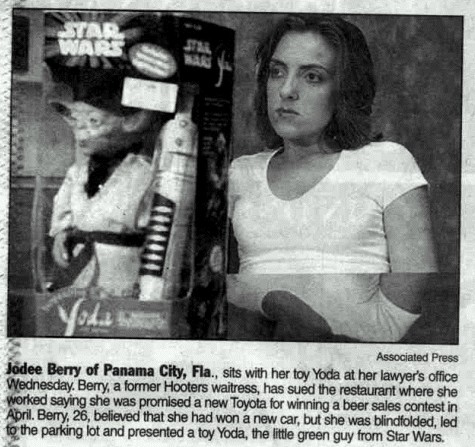ELVIS DUMERVIL AND THE PRICE OF SIX MINUTES
by
Henry
Lowenstein, PhD
Professor
of Management and Law
Coastal
Carolina University
March
30, 2013
Professors often hear the lament from students about being late to
class, late with assignments. They ask why this should be such a big deal? What difference does it make if I am a few
minutes or a day late? They quickly
learn the importance of time in the legal environment of business and business
law sections on contracts as well as
it coming into play on the topic of agency.
In business, as is often the case, “time is of the essence.” In bidding on public contracts deadlines are
explicit and unyielding. In the private
sector with Just-In-Time production methods and financial markets that operate
by the second 24/7, a late submission often costs millions of dollars,
potential legal liability and the loss of careers.
The critical importance of timeliness is well demonstrated by the
recent plight of NFL football’s Elvis Dumervil, formerly of the Denver Broncos,
a tale that has well resonated with my students………………..
Elvis Dumervil is an All-Star defensive end in the NFL’s Denver
Broncos football team. An All American from University of Louisville,
he was drafted in the 4th round of the NFL 2010 draft.
THE CONTRACT
In July 2010, Dumervil signed a 6-Year player employment contract
for $61.5 million which included a retention guarantee of $43.168 million
through 2015. The contract specified that if Dumervil was on the roster at
2:00pm Central Time on March 15, 2013, he would receive a guaranteed salary of
$12 million for the 2013 NFL season.
Subsequently, the Denver Broncos encountered problems with the $123
million salary cap established for each team by the National Football League (NFL).
To meet its salary cap requirements, the Denver Broncos engaged in
renegotiations with players to restructure contracts to meet the salary cap
Dumervil and his agent were offered an $8 million guaranteed for
the 2013 season, which Dumervil intended to accept. Dumervil’ s offer,
however, required signed paperwork agreeing to the terms and confirming his
position on the roster by 2:00 p.m. Central Time on Friday, March 15, 2013
This duty was left to his agent, Marty Magid.
On Friday, March 15, 2013, Magid did not fax the completed
paperwork to the Broncos until 2:06 p.m. Central time…..6 MINUTES LATE!
OUTCOME:
1.
In accordance with the contract, missing the 2:00pm deadline
automatically triggered a clause whereby the Denver Broncos released Dumervil
as a free agent, thus, no contract with the Broncos. This immediately
saved the team $4.869 million. (known as “Dead Money” under the NFL salary cap)
which the team can now reallocate against the salary cap.
2.
Dumervil may not recover the lost $4.869 million, even if the team
agrees to take him back and re-sign him for another year.
3.
Dumervil is out of work and has to seek another team as a free
agent if one will hire him, or if the Broncos will re-sign him, both options
likely to result in lower contract terms.
4.
Dumervil has fired his agent. (He may have a negligence
cause of action against the agent, yet to be determined.)
5. On March 26, 2013, the Baltimore Ravens
announced signing now free agent Dumervil to a new 5 year, contract for $5 million
per year. In USA Today Mr. Dumervil expressed
satisfaction with the new team and contract.
Nevertheless,
the SIX MINUTES cost him at least $3 million in salary a year ($15 million over
5 years) he would had received had his acceptance been received on time by the
Denver Broncos. Or in other words that
lateness equaled $2.5 million in salary
per late minute!
LESSON: As students in contracts:
1.
A written offer will be read to its plain meaning and its specific
terms.
2.
Terms of acceptance: In this case, the terms of the offer
were specific that it must be RECEIVED by 2:00 PM CT. There is no
exception to the plain reading of the contract terms.
3. Because the acceptance terms were specific,
the general rule that an offer is accepted once dispatched (such as the “Mail
Box Rule”) does not apply in this case.
And, as to be learned in Agency:
The principal (in this
case Dumervil) is liable for the acts entered into (or failure to enter into)
by the Agent when he gives the agent actual (express) authority to act on his
behalf.
MOST IMPORTANTLY….REMEMBER THE
COST OF 6 MINUTES. In contracts, time is of the essence.
_______________________________________________
(Sources: Mike Kilis,
Broncos Release Elvis Dumervil because new contract too late, Denver Post, March 16, 2013 (updated)
Jim Corbett, With A Wink and a nod,
Elvis Dumervil was a Raven, USA Today, March 26 2013 at www.usatoday.com





